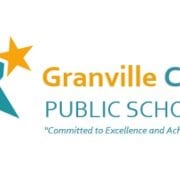Restorative Justice Practices Coming to Granville Co. Public Schools
-Press Release, Granville County Public Schools
Restorative Justice Practices Coming to Granville County Public Schools
Restorative practices is a social science that studies how to improve and repair relationships between people and communities. The purpose is to build healthy communities, increase social capital, decrease crime and antisocial behavior, repair harm and restore relationships.
Restorative justice gives victims the chance to meet or communicate with their offender to explain the real impact of the crime – it empowers victims by giving them a voice. It also holds offenders to account for what they have done and helps them to take responsibility and make amends.
Granville County Public Schools is ready to embark upon this new initiative this summer by partnering with Crisis and Trauma Resource Institute Inc. CTRI will conduct two 3-day workshops on Restorative Justice Facilitator Training, for a group of up to 30 participants per session.
At the end of the two 3-day sessions, Granville County Schools will have 60 Restorative Justice trained Facilitators. The workshop will be held in Oxford, NC, on mutually agreed upon dates in June 2019. The 60 facilitators will then work on a plan of getting all of our employees trained. That will mean that our teachers, administrators, bus drivers, TAs, Child Nutrition, custodians, etc. will be trained.
Workshop Description Restorative Justice Facilitator Training
Restorative justice is a response to harmful incidents that seeks the direct inclusion of all involved. The goal is to meaningfully address the harm and foster renewed relationships. Drawing on the work of Canada’s original restorative justice pioneers and best practices around the globe, this training will deliver the essential skills of convening harm-focused dialogue processes within community, organizational and educational settings.
This is a highly interactive workshop where participants will practice and gain confidence in facilitating a model of dialogue that is participant-driven, culturally sensitive and empowering for all involved.

